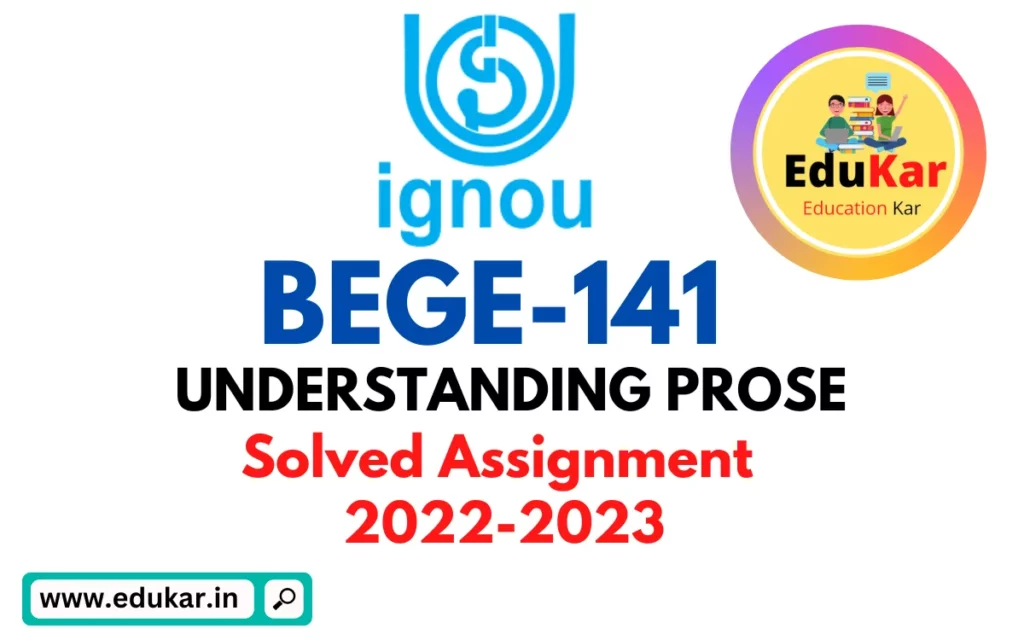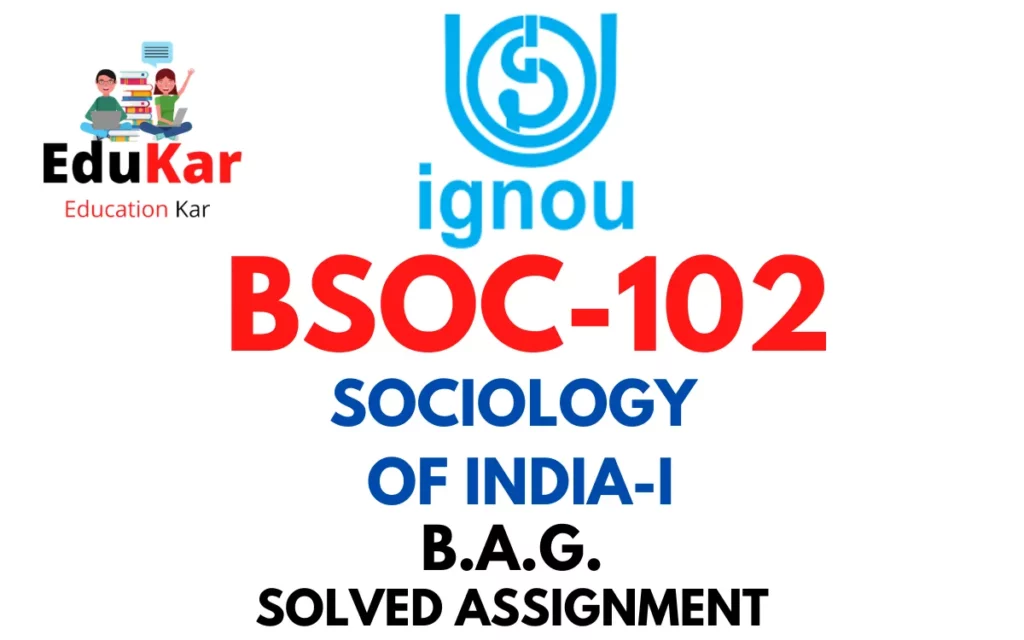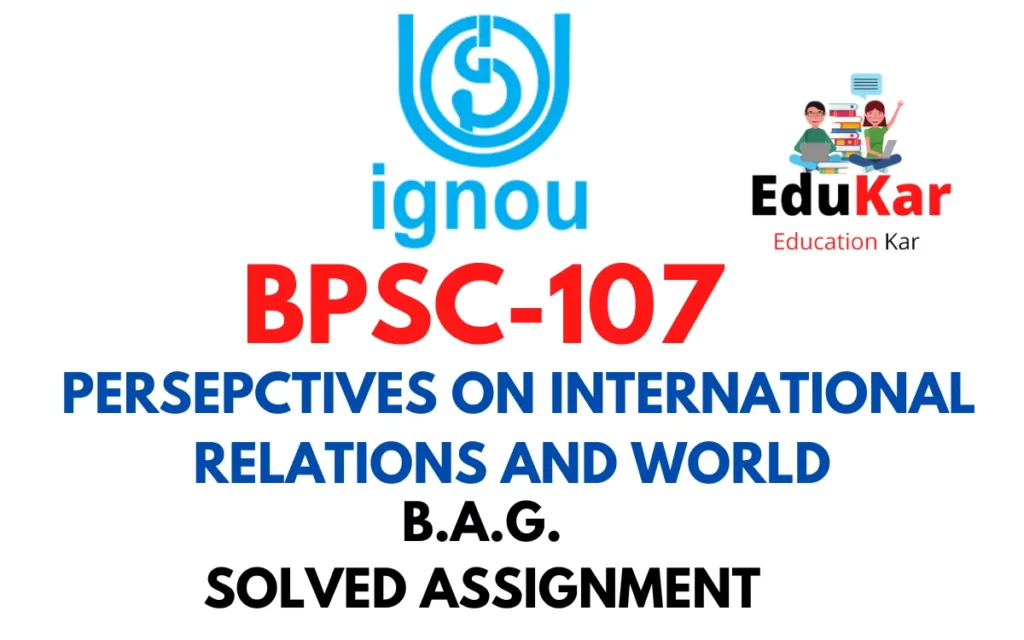Contents
- 1 Assignment – I
- 2 Answer the following in about 500 words each.
- 3 1. Discuss the relationship between political theory and other inter –related terms.
- 4 2. Explain what is politics.
- 5 Assignment – II
- 6 Answer the following questions in about 250 words each.
- 7 1. Write a note on classical Liberalism.
- 8 2. What do you understand by the theory of Surplus Value? Elaborate.
- 9 3. What is Conservatism? Explain with reference to the views of Edmund Burke.
- 10 Assignment – III
- 11 Answer the following questions in about 100 words each.
- 12 1. Write a note on the First Wave of feminist political theory.
- 13 2. Examine Jean Francois Lyotard’s views on Post –Modernism.
- 14 3. Distinguish between procedural and sustentative democracy.
- 15 4. Examine any one theory of democracy.
- 16 5. What is the foreign policy dimension of democracy? Elaborate.
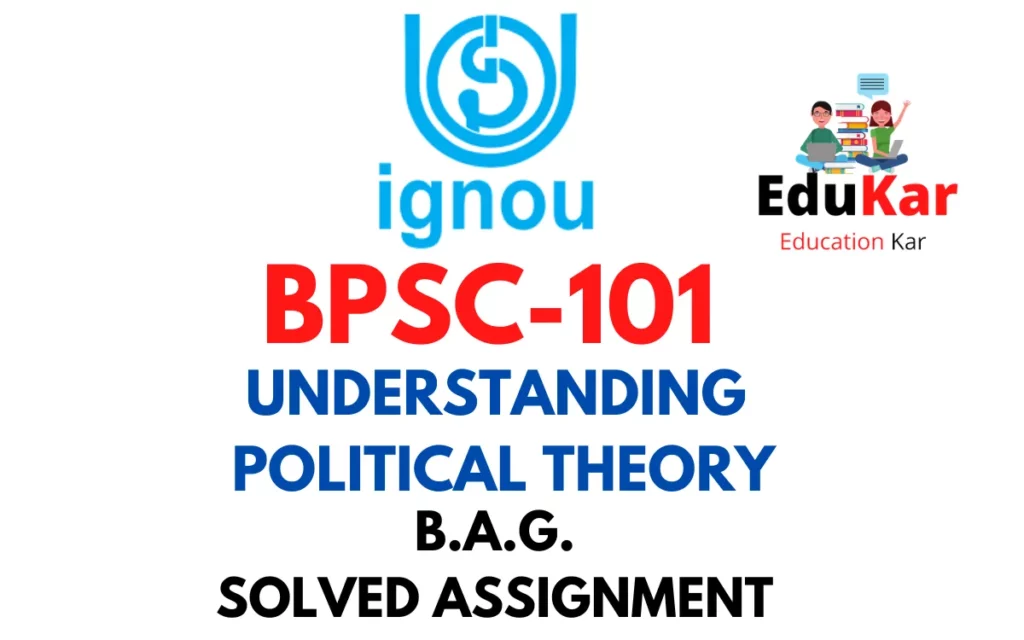
| Title | BPSC-101: IGNOU BAG Solved Assignment 2022-2023 |
| University | IGNOU |
| Degree | Bachelor Degree Programme |
| Course Code | BPSC-101 |
| Course Name | UNDERSTANDING POLITICAL THEORY |
| Programme Name | Bachelor of Arts (General) |
| Programme Code | BAG |
| Total Marks | 100 |
| Year | 2022-2023 |
| Language | English |
| Assignment Code | BPSC-101/ASST/TMA/2022-23 |
| Last Date for Submission of Assignment: | For June Examination: 31st April For December Examination: 30th September |
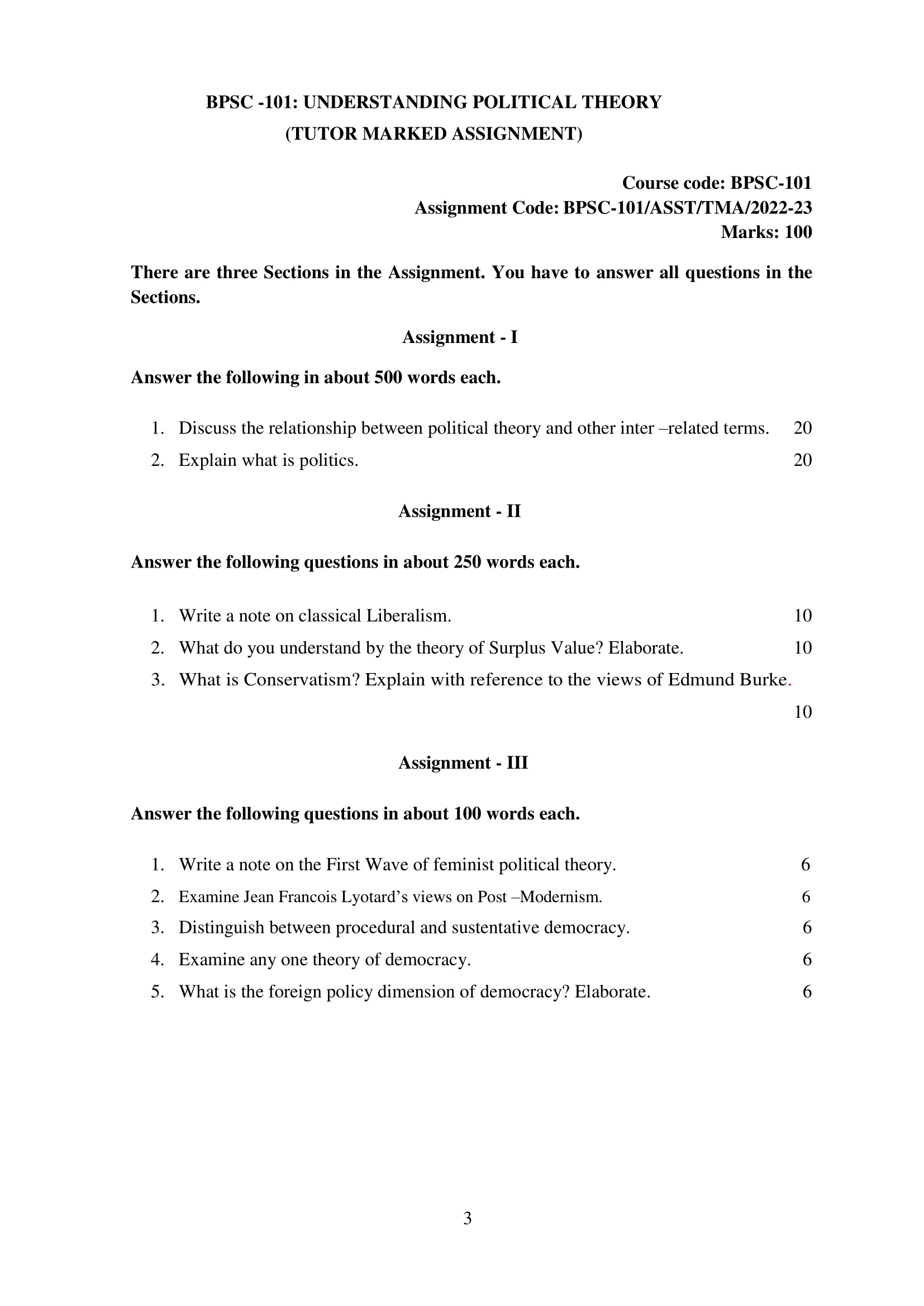
Assignment – I
Answer the following in about 500 words each.
Ans: Political theory is a subfield of political science that aims to study and understand the nature of politics, government, and power. It is a systematic and critical inquiry into the concepts, principles, and values that underlie political systems and practices. Political theory is interrelated with several other terms and disciplines, including political philosophy, international relations, public policy, and political economy.
Political philosophy is the oldest subfield of political theory and deals with questions of normative political theory. It focuses on fundamental questions about justice, freedom, democracy, and power, and seeks to develop normative theories of political institutions, such as the state and the law. Political philosophy is concerned with developing moral and ethical principles that guide political action and decision-making. It is often rooted in classical and modern philosophical traditions, such as liberalism, communitarianism, Marxism, and feminism. Political philosophy is an important component of political theory, as it provides the normative foundation for many of the empirical investigations undertaken by political scientists.
International relations is a subfield of political science that deals with the study of relations between nations and other actors in the global system. It is concerned with issues such as war and peace, global governance, and international institutions. International relations often draws on the theories and concepts developed in political theory, such as realism, liberalism, and constructivism, to analyze international relations. Political theory and international relations are interrelated, as the normative theories of political philosophy inform the study of international norms and practices.
Public policy is the study of how governments make decisions and allocate resources to achieve their goals. It is concerned with the analysis of policy problems, the evaluation of policy options, and the implementation and impact of policy decisions. Political theory is relevant to public policy, as it provides the normative framework for the analysis of policy issues. For example, political theory can help to evaluate the ethical implications of policy decisions, such as the distribution of resources and the protection of individual rights.
Political economy is a subfield of political science that focuses on the study of economic systems and their relationship to political institutions. Political economy is concerned with issues such as inequality, economic development, and globalization. Political theory is relevant to political economy, as it provides the normative framework for the analysis of economic policies and practices. For example, political theory can help to evaluate the ethical implications of economic policies, such as the impact of free trade on developing countries or the role of the state in regulating the economy.
2. Explain what is politics.
Ans: Politics is the process of making collective decisions about how society should be organized and how resources should be allocated. It involves the exercise of power and authority to achieve certain goals, such as promoting social justice, maintaining security, or advancing economic prosperity.
Politics takes place in a variety of contexts, from the local to the global level, and involves a wide range of actors, including government officials, politicians, interest groups, activists, and citizens. It is often characterized by competition and conflict over resources, values, and priorities.
The study of politics is a central part of political science, which seeks to understand the nature of political systems and processes. Political scientists use a variety of methods, such as statistical analysis, case studies, and comparative analysis, to investigate topics such as elections, public opinion, policymaking, and international relations.
Politics is not a neutral or objective process, as it is shaped by the values, interests, and beliefs of the actors involved. Different political ideologies, such as liberalism, conservatism, socialism, and anarchism, offer different visions of how society should be organized and what values should be prioritized. These ideologies often compete with each other to influence political decision-making and shape the direction of society.
Assignment – II
Answer the following questions in about 250 words each.
1. Write a note on classical Liberalism.
Ans: Classical liberalism is a political philosophy that emerged in the 18th century as a response to the authoritarian rule of monarchies and the established churches in Europe. It emphasizes individual liberty, limited government, and economic freedom as the foundation of a just and prosperous society.
The classical liberal worldview holds that individuals have inherent rights to life, liberty, and property, which should be protected by the state. Government’s role is to ensure the rule of law, to protect individual rights and to maintain a legal framework for the operation of the free market. It is believed that an economy that is free of government interference leads to prosperity, innovation and human flourishing. Free trade, sound money, and low taxes are cornerstones of classical liberalism.
Classical liberals reject the idea of a social hierarchy based on birth or class, and instead, believe that individuals should be judged by their merit and hard work. They argue that a just society is one where people are free to pursue their own interests and use their talents to the fullest, without being impeded by arbitrary barriers or government restrictions.
Classical liberalism has had a significant impact on the development of modern western democracies, and its ideas can be seen in many of the legal and political institutions that we take for granted today. However, it has also been criticized for neglecting the needs of the less fortunate and failing to address issues of social inequality. Nonetheless, classical liberalism remains an important strand of political thought that continues to shape debates about the role of government, individual rights, and economic freedom in contemporary society.
Overall, classical liberalism has been a powerful force in shaping the political and economic structures of the modern world, and its principles continue to be debated and implemented in different ways by political leaders and thinkers today.
- Discuss the impact of social media on modern society.
Social media has revolutionized the way we communicate, share information, and interact with each other. It has had a profound impact on modern society, affecting everything from politics and business to personal relationships and cultural trends.
One of the most significant impacts of social media has been its role in facilitating political activism and social movements. Social media has provided a platform for marginalized communities to voice their concerns and organize collective action, leading to a number of high-profile social movements, including #MeToo, Black Lives Matter, and the Arab Spring. It has also played a major role in shaping public opinion and political discourse, with politicians and governments around the world using social media to connect with voters and shape public opinion.
In addition to its impact on politics, social media has also transformed the way we conduct business, with many companies using social media platforms as a key tool for marketing, customer engagement, and brand building. It has also created new opportunities for entrepreneurship and self-promotion, with influencers and content creators using social media platforms to build personal brands and monetize their online presence.
However, social media has also been linked to a number of negative impacts on modern society. The prevalence of fake news and disinformation on social media has contributed to a growing mistrust of mainstream media and traditional institutions, and has been linked to the rise of populist movements and political polarization. Additionally, the rise of social media has been linked to increased rates of anxiety, depression, and social isolation, particularly among younger generations.
2. What do you understand by the theory of Surplus Value? Elaborate.
Ans: The theory of surplus value is a fundamental concept in Marxist economics that seeks to explain how the capitalist system generates profits by exploiting the labor of workers. According to this theory, the value of a product is determined by the amount of labor that goes into producing it, and the capitalist system extracts a surplus from the labor of workers that is not returned to them in the form of wages.
In Marxist theory, the value of a product is determined by the amount of socially necessary labor time required to produce it. The amount of labor time required to produce a product is determined by the intensity of work, the level of skill required, and the productivity of the means of production. The value of the product is then realized in the marketplace when it is exchanged for money.
The capitalist system, according to the theory of surplus value, exploits workers by paying them less than the value of the products they produce. The difference between the value of the product and the wages paid to the workers is the surplus value, which is appropriated by the capitalist as profit.
Marx argued that this system of exploitation is the result of the capitalist mode of production, in which the means of production are owned by a small class of capitalists who use their control over these means of production to extract a surplus from the labor of workers. This system perpetuates itself through the cycle of investment, production, and consumption, with capitalists reinvesting their profits to expand production and increase their control over the means of production.
The theory of surplus value has been influential in shaping Marxist critiques of capitalism, and has been used to argue for the necessity of worker ownership and control of the means of production, as well as the need for a socialist economic system that prioritizes social needs over profit.
3. What is Conservatism? Explain with reference to the views of Edmund Burke.
Ans: Conservatism is a political philosophy that values tradition, stability, and gradual change. It seeks to preserve the established order and institutions of society, and believes that social and political change should be incremental, rather than rapid or revolutionary. One of the most influential conservative thinkers is Edmund Burke, an Irish philosopher, and statesman who lived in the 18th century.
Burke’s conservatism is rooted in his belief that human beings are not rational and should be governed by a combination of reason, custom, and tradition. He argued that society is an organic entity, with its own unique customs, institutions, and values, that have evolved over time to meet the needs of its members. He believed that these traditions and customs are the source of social order and stability, and that they should be preserved and respected.
Burke’s conservatism was also skeptical of abstract theories and ideologies, which he believed were disconnected from the complexities of human nature and social reality. He argued that the pursuit of radical change based on abstract principles would inevitably lead to social chaos and instability.
In addition, Burke believed that change should be gradual and guided by the accumulated wisdom of the past. He was critical of the French Revolution, which he saw as a destructive force that sought to sweep away centuries of tradition and replace it with a new and untested social order. Burke was also a strong advocate for the rule of law and the importance of constitutional limits on government power.
Assignment – III
Answer the following questions in about 100 words each.
1. Write a note on the First Wave of feminist political theory.
Ans: The First Wave of feminist political theory emerged in the late 19th and early 20th centuries in the context of the women’s suffrage movement. This wave of feminist political thought focused on achieving political equality for women through legal and political reforms, such as the right to vote, property rights, and access to education. Key figures of this wave include Mary Wollstonecraft, who argued for women’s rights to education and political representation, and suffragists such as Susan B. Anthony and Elizabeth Cady Stanton, who worked to secure the right to vote for women. The First Wave of feminist political theory laid the groundwork for subsequent waves of feminist thought and activism by highlighting the importance of legal and political reform in achieving gender equality.
2. Examine Jean Francois Lyotard’s views on Post –Modernism.
Ans: Jean-Francois Lyotard was a French philosopher who played a prominent role in the development of postmodernism. In his seminal work, “The Postmodern Condition,” Lyotard argued that postmodernism is characterized by a skepticism towards the grand narratives of modernity, such as progress, reason, and human emancipation. Instead, postmodernism emphasizes difference, plurality, and contingency. According to Lyotard, postmodernism challenges the notion that there is one “correct” or “universal” way of understanding the world, and instead recognizes the existence of multiple perspectives and interpretations.
One of Lyotard’s key contributions to postmodernism is his concept of the “incredulity towards metanarratives,” which refers to a skepticism towards grand narratives that claim to provide a comprehensive explanation of reality. Lyotard argues that in the postmodern era, these grand narratives have lost their legitimacy and no longer hold the same sway they once did. He suggests that in their place, we should embrace a plurality of smaller narratives, which can better capture the complexity and diversity of contemporary experience.
Lyotard also argues that postmodernism challenges the traditional role of knowledge and expertise. Instead of viewing knowledge as objective and universal, postmodernism recognizes that knowledge is always situated and contingent. This means that knowledge is shaped by social, cultural, and historical contexts, and is always subject to revision and critique. Lyotard suggests that this recognition of the situatedness of knowledge leads to a more democratic and open society, where a diversity of voices and perspectives can be heard.
One of the criticisms of Lyotard’s postmodernism is that it can be seen as a relativistic and nihilistic philosophy that rejects any possibility of objective truth or progress. Critics argue that postmodernism can lead to a cynical and apathetic worldview, which undermines the possibility of political action and social change.
3. Distinguish between procedural and sustentative democracy.
Ans: Procedural democracy and substantive democracy are two different approaches to conceptualizing democracy.
Procedural democracy refers to a form of democracy that emphasizes the importance of procedures and rules for making political decisions. In procedural democracy, the focus is on ensuring that all citizens have equal access to the political process, and that the process is fair, transparent, and inclusive. Procedural democracy is often associated with representative democracy, where citizens elect representatives who make decisions on their behalf. Examples of procedural democratic practices include free and fair elections, the rule of law, protection of human rights, and an independent judiciary.
On the other hand, substantive democracy emphasizes the importance of achieving specific outcomes or goals, such as social justice, equality, and the protection of individual and minority rights. In substantive democracy, the focus is on ensuring that the decisions made by the government are in the best interests of all citizens, and that the government is accountable to the people. Substantive democracy is often associated with participatory democracy, where citizens are directly involved in decision-making processes. Examples of substantive democratic practices include policies that aim to reduce inequality, protect the environment, or promote access to education and healthcare.
While procedural democracy and substantive democracy are often seen as distinct approaches, in practice, they are often interconnected. For example, free and fair elections are a key component of procedural democracy, but they also have substantive outcomes, such as ensuring that all citizens have an equal say in political decision-making. Similarly, policies aimed at promoting social justice and equality are an important component of substantive democracy, but they also require fair and transparent procedures for implementation.
4. Examine any one theory of democracy.
Ans: Deliberative democracy is a theory of democracy that emphasizes the importance of reasoned discussion and debate among citizens in making political decisions. According to this theory, democracy is not just about voting or choosing between competing interests, but rather it is about citizens coming together to discuss and debate issues in a reasoned and respectful manner.
At the core of deliberative democracy is the idea that political decisions should be made through a process of deliberation among citizens, who bring their diverse perspectives and experiences to the table. This process should be open and inclusive, and should encourage citizens to listen to and learn from one another, as well as to critically evaluate the arguments and evidence presented. The goal of deliberation is not just to reach a decision, but to arrive at a decision that is well-informed and reflects the shared values and interests of the community.
One of the key proponents of deliberative democracy is political theorist Jürgen Habermas. According to Habermas, the public sphere is a space where citizens can come together to engage in rational and critical debate on issues of common concern. The public sphere is not limited to formal political institutions, but can also include social movements, community groups, and online forums.
Deliberative democracy has been put into practice in a variety of settings, from citizen assemblies and public hearings to participatory budgeting and online forums. One example of deliberative democracy in action is the Citizens’ Assembly on Brexit in the UK, which brought together a diverse group of citizens to deliberate on the country’s exit from the European Union. The assembly provided a forum for citizens to learn about the issues, hear from experts and stakeholders, and engage in respectful and informed debate. The recommendations of the assembly were then presented to Parliament for consideration.
While deliberative democracy has its strengths, it also faces several challenges. One challenge is ensuring that the process is truly inclusive and representative of the diversity of the community. Another challenge is ensuring that the process is not dominated by those with the most power, resources, or expertise. Finally, there is the challenge of ensuring that the process leads to actionable and implementable decisions, and that the decisions made are not just symbolic or non-binding.
5. What is the foreign policy dimension of democracy? Elaborate.
Ans: The foreign policy dimension of democracy refers to the ways in which democratic countries interact with each other and with non-democratic countries on the international stage. In general, democratic foreign policy is characterized by a commitment to promoting democracy and human rights, upholding international law and norms, and promoting global cooperation.
One of the key features of democratic foreign policy is the promotion of democracy and human rights. Democracies believe that individuals have inherent rights and freedoms that should be protected, and that these principles should be extended beyond their borders. As a result, democratic countries often seek to support democratic movements and institutions in other countries, and to encourage the adoption of democratic practices and institutions around the world.
Another important element of democratic foreign policy is the promotion of international law and norms. Democracies believe that the international system should be based on a set of rules and principles that are agreed upon by all countries, and that these rules and principles should be enforced fairly and impartially. As a result, democratic countries often work to strengthen international institutions like the United Nations, and to promote cooperation and coordination among countries.
Finally, democratic foreign policy is characterized by a commitment to global cooperation. Democracies recognize that many of the world’s most pressing challenges, such as climate change, economic inequality, and global health pandemics, require coordinated action among countries. As a result, democratic countries often work together to address these challenges, and to promote sustainable and inclusive economic growth and development around the world.
How to Download BPSC-101 Solved Assignment?
You can download it from the www.edukar.in, they have a big database for all the IGNOU solved assignments.
Is the BPSC-101 Solved Assignment Free?
Yes this is absolutely free to download the solved assignment from www.edukar.in
What is the last submission date for BPSC-101 Solved Assignment?
For June Examination: 31st April, For December Examination: 30th October


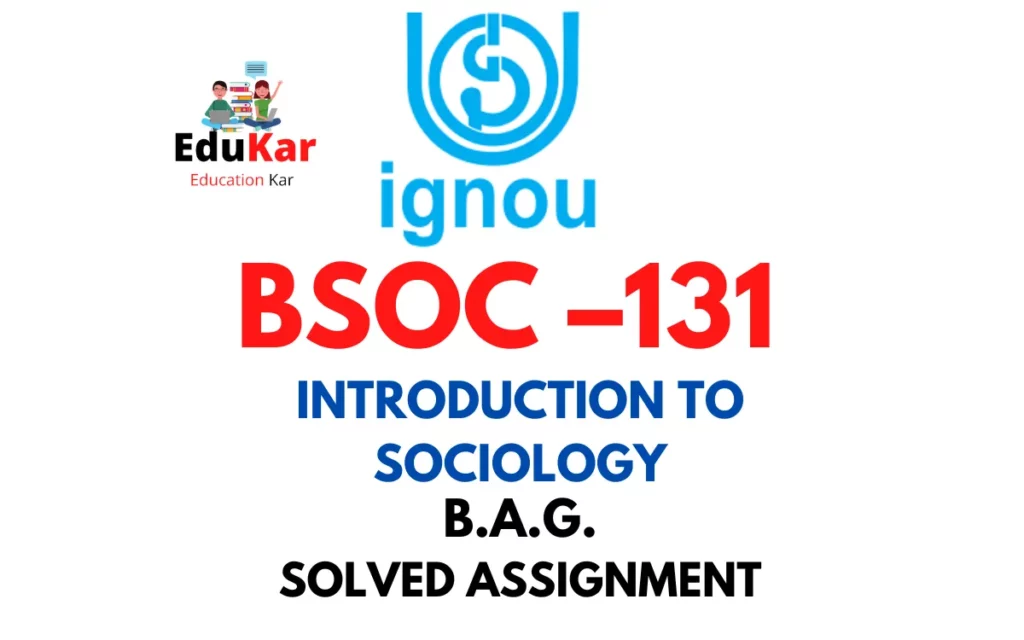

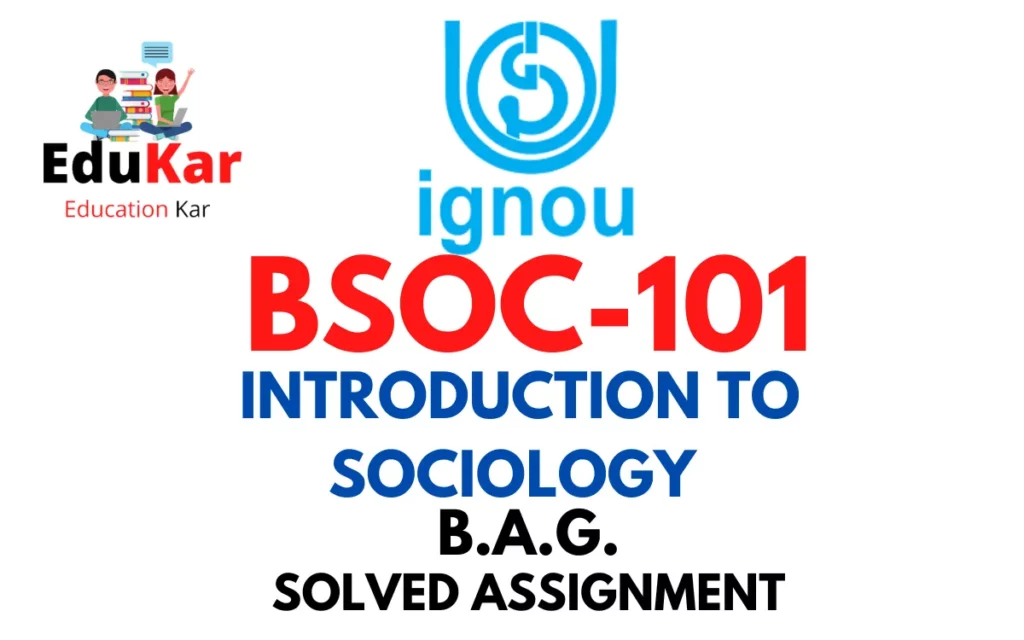

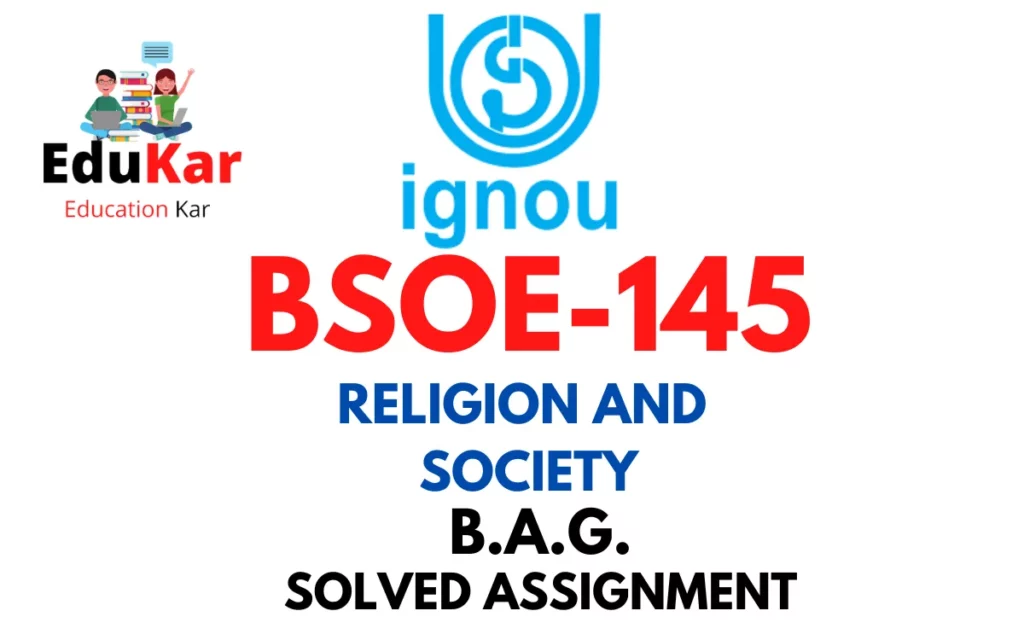
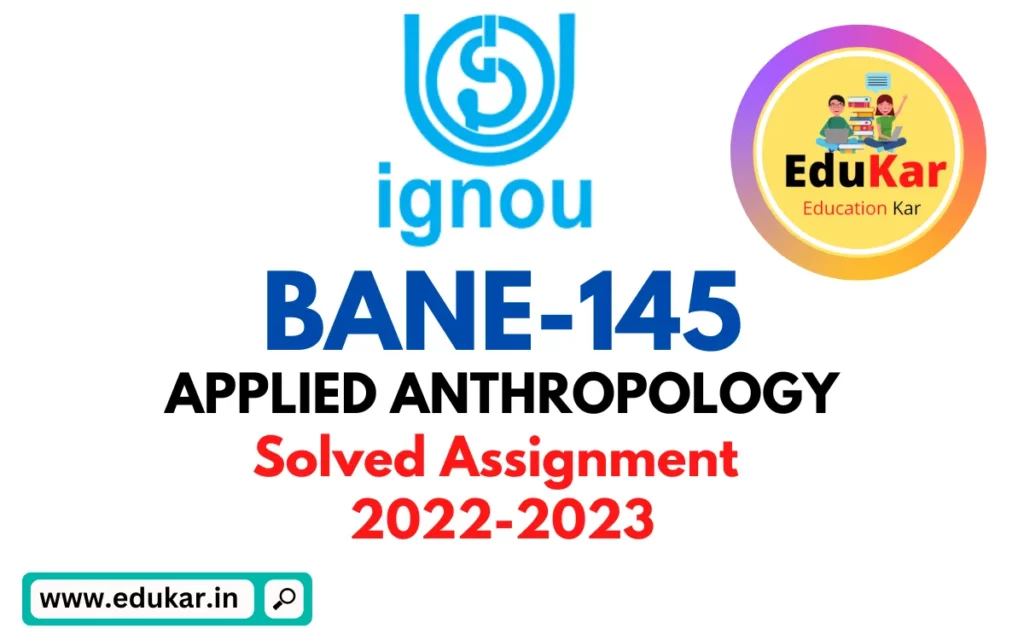

![[Solved Assignment] BPCS 188-APPLICATIONS OF SOCIAL PSYCHOLOGY (IGNOU-BAG) 2022-2023 BPCS 188-APPLICATIONS OF SOCIAL PSYCHOLOGY IGNOU BAG Solved Assignment 2022-2023](https://edukar.in/wp-content/uploads/2023/01/BPCS-188-APPLICATIONS-OF-SOCIAL-PSYCHOLOGY-IGNOU-BAG-Solved-Assignment-2022-2023-1024x640.webp)

